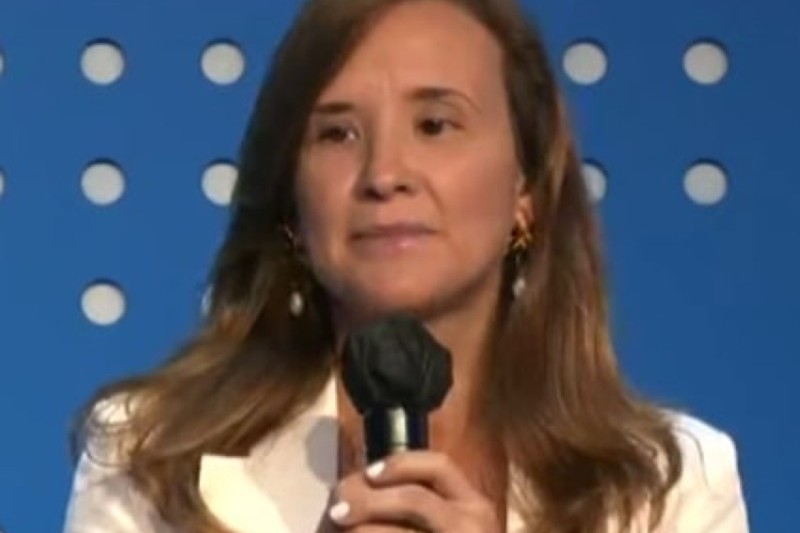Gisela Sánchez Maroto, who was elected as CABEI’s Executive President last November, detailed the ongoing and planned changes in an interview with OCCRP’s partner Redacción Regional.
The changes include putting the brakes on the amount of funds going to the governments of Nicaragua and El Salvador, both of which have taken authoritarian turns in recent years.
OCCRP’s investigation found that, under CABEI’s previous president executive Dante Mossi, the bank doubled the amount of funds it handed out to the two countries - despite widespread criticism of grave human rights violations.
In one instance, journalists found that El Salvador’s president Nayib Bukele had diverted US$200 million from a CABEI loan, which had been designed to support small and medium businesses during the pandemic, to his pet project of turning Bitcoin into a national currency.
In her interview with Redacción Regional, Sánchez confirmed that the two countries had already surpassed their allowed credit limits, and understood that they would be held to those limits from now on.
Last week, the Green Climate Fund (GCF) pulled out of a controversial biosphere protection project that would have handed $116.6 million to the Nicaraguan President Daniel Ortega, which was to be financed by CABEI, over human rights concerns.
Juan Diego Barbarena, a Nicaraguan pro-democracy activist and lawyer, told La Mesa Redonda that for the “Ortega-Murillo dictatorship,” the project’s cancellation represented a “setback in terms of financing from international organizations.”
CABEI’s new president also told Redacción Regional that the bank has begun a review of all projects financed over the past decade with signs of any irregularities, including all those that had been identified by OCCRP and partners.
“I read all the reports that you and OCCRP prepared and clearly, when one turns back the clock, there are opportunities to improve the project design and supervision,” she said. “In the coming months, years, I hope to produce a stronger and renewed CABEI, and in which all of you can fully trust.”
These projects include the construction of the Agua Zarca hydroelectric dam in Honduras, which led to the assassination of environmental activist Berta Cáceres in 2016, and a Guatemalan highway built by the scandal-plagued Brazilian firm Odebrecht, which allegedly paid bribes to senior CABEI executives.
CABEI’s Head of the Integrity and Compliance Office, Valladares Alcerro, added that the 10-year review is being undertaken on the suggestion of Transparency International, who the bank approached in the wake of OCCRP and partners’ findings.
According to Sánchez, CABEI will invite third parties to work alongside the bank to ensure that its funds are properly used. In the case of Nicaragua, she said that the third party is the United Nations Office for Project Services (UNOPS).
Shez also confirmed that Ana Marcela Giammattei, the daughter of the former Guatemalan president, had been removed from her position as assistant to CABEI’s country director. She was just one of many examples of nepotism within the bank, in which family members of politicians received positions and exorbitant salaries.
Sánchez said the bank had taken the action after the U.S. State Department banned her father, Alejandro Giammattei, from entering the country this January due to “significant corruption”.
In January this year, Sánchez reached out to the journalists who took part in the investigation in order to participate in an informal conversation about their findings and the necessary changes within the bank.
In that meeting, which took place in February, she confirmed that CABEI had already implemented a new policy to respond to all freedom of information requests within 24 hours.
When OCCRP had previously contacted the bank for comment on its findings, before Sánchez took charge, the bank replied that it was only obligated by their own rules to provide a response within two months.
Sánchez was elected as CABEI’s new executive president in November 2023, just weeks after OCCRP and partners published their findings in a project titled The Dictators’ Bank. The Costa Rican businesswoman, who worked in finance prior to her appointment, is the first female head of the development bank in its 63-year history.
Asked how the bank will prove that it is no longer in service of authoritarian leaders, she told Redacción Regional that “the best indicator is what we’ll have in our portfolio. At the end of the day, we are the projects that we finance.”



